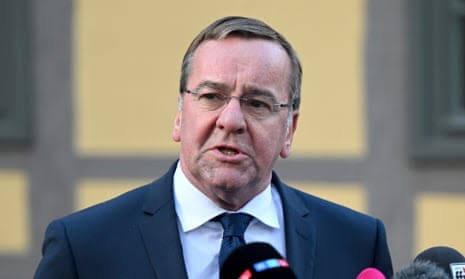
Germany’s Defence Minister Boris Pistorius says he is confident that the country’s ruling coalition will finalise and approve a new model of military service in time for it to take effect in 2026, despite ongoing political disagreements within the government.
Speaking to Reuters on Saturday, Pistorius said the urgency of Europe’s current security landscape—particularly concerns over Russia—made swift action essential. “Everyone is aware of the seriousness of the situation,” he said. “I am therefore confident that the law will come into force at the beginning of the year.”
The German cabinet has already endorsed Pistorius’ proposal for a new voluntary military service, designed to boost the number of recruits and reservists and strengthen national defence. However, the plan still awaits parliamentary approval and faces opposition from within Pistorius’ own Social Democratic Party (SPD) as well as some lawmakers in Chancellor Friedrich Merz’s conservative bloc.
Germany ended compulsory military service in 2011, but has since struggled to meet troop targets. The Bundeswehr currently has about 180,000 active soldiers, a figure Pistorius hopes to increase to 260,000 by the early 2030s to meet NATO’s force requirements and enhance the country’s defence readiness.
The defence minister rejected a compromise proposal that included a conscription lottery for young men if voluntary recruitment falls short. Pistorius argued that such a system would unfairly select individuals at random and risk alienating younger citizens.
“We must convince the younger generation with arguments instead of frustrating them,” he said. “We must make it clear to them that it is worthwhile to have a strong army that is a deterrent to states like Russia.”
He also defended maintaining universal medical evaluations, noting that Germany must be able to quickly identify who is fit for duty in the event of a national emergency.
Separately, Pistorius confirmed that Germany plans to conclude testing of loitering munitions, often referred to as “kamikaze drones,” by the end of the year. Three companies are currently participating in the trials, after which the defence ministry will submit an order proposal to parliament.
The weapons, which have been pivotal in the war in Ukraine, remain controversial in Germany due to their association with US drone strikes in Afghanistan.
The Financial Times recently reported that defence start-ups Helsing and Stark, along with defence giant Rheinmetall, were being considered for contracts worth nearly €300 million ($350 million) each. Pistorius, however, clarified that no final agreement had been reached.
As Germany works to modernise its military and redefine its defence posture, Pistorius’s proposed service model marks a key step toward rebuilding the country’s armed forces amid growing global security challenges.
Melissa Enoch



